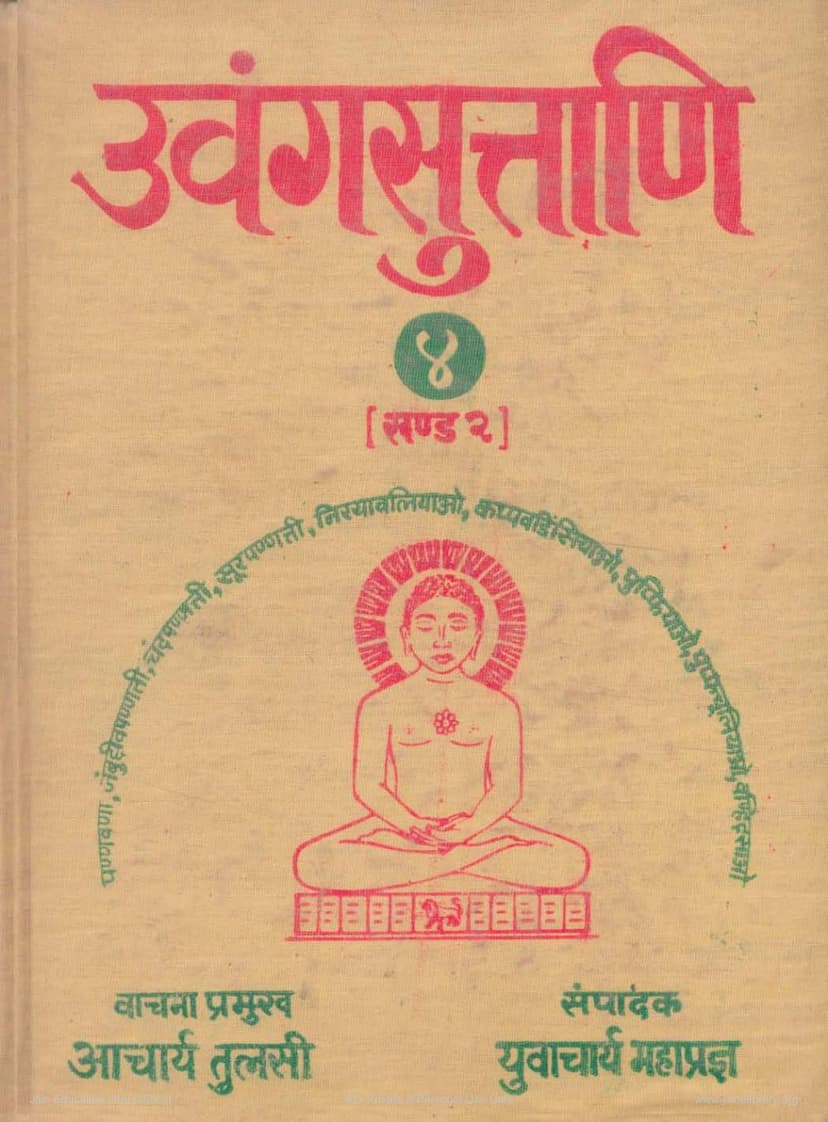Agam 17 Upang 06 Chandra Pragnapti Sutra Chandapannatti Terapanth
Added to library: September 1, 2025

Summary
This document is the Hindi translation and critical edition of Agam 17, Upang 06, Chandra Pragnapti Sutra (Chandapannatti), published by Jain Vishva Bharati, Ladnun. The work was undertaken under the guidance of Acharya Tulsi and edited by Yuvacharya Mahapragna. The publication date is Vikram Samvat 2 2045 (1989 A.D.).
The book is part of the Agam Sutra Granthamala series, which aims to present Jain Agamas with original texts, variant readings, and word indices. This specific volume, Uvangasutani Part IV, Volume II, contains nine Upangas:
- Paṇṇavaṇā (Prajñāpanā)
- Jambūdvīvapaṇṇatti (Jambūdvīvapaṇṇatti)
- Candrappaṇṇatti (Candrapra gnapti)
- Sūrappaṇatti (Suryapra gnapti)
- Nirayāvaliyāo (Nirayāvali)
- Kappadisiyao (Kalpava disikā)
- Pu phiyao (Pushpikā)
- Pujphchuliyāo (Pushpachulika)
- Vanhidasão ão (Vahnidāśā)
The introduction highlights the significance of this publication, stating that it marks the completion of the publication of 32 Jain Agamas in this series, presented with critical textual analysis. It details the editorial process, including the consultation of various manuscripts and commentaries, the challenges of editing ancient texts with linguistic and conceptual shifts, and the collaborative efforts involved.
The document also provides a detailed introduction to each of the nine Upangas included in this volume, covering their nomenclature, subject matter, authorship, and commentary traditions. Specific examples of textual critical analysis, such as the word 'ga ṇṭhī' versus 'gat yī' in Paṇṇavaṇā, are mentioned.
The text also includes a section on the "Correction of Texts" (Shuddhi Patra), listing erroneous words found in manuscripts and their corrected forms, along with cross-references to the relevant pages and verses. This demonstrates the rigorous scholarly approach to re-establishing the original purity of the scriptures.
The preface by Acharya Tulsi expresses the deep satisfaction derived from the meticulous research and editing of the Jain Agamas, attributing the success to the dedicated efforts of his disciples. Yuvacharya Mahapragna's editorial remarks emphasize the comprehensive nature of the project and the invaluable contribution of various individuals and institutions.
In essence, this publication is a monumental work in the field of Jain scriptural studies, presenting a critical edition of significant Upanga texts, making them accessible to scholars and researchers for further study and understanding of Jain philosophy and cosmology. The detailed word index and manuscript descriptions underscore the scholarly rigor of the project.